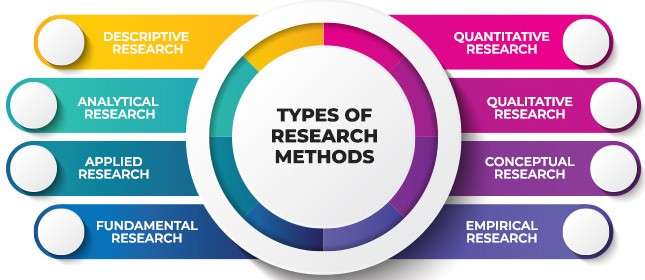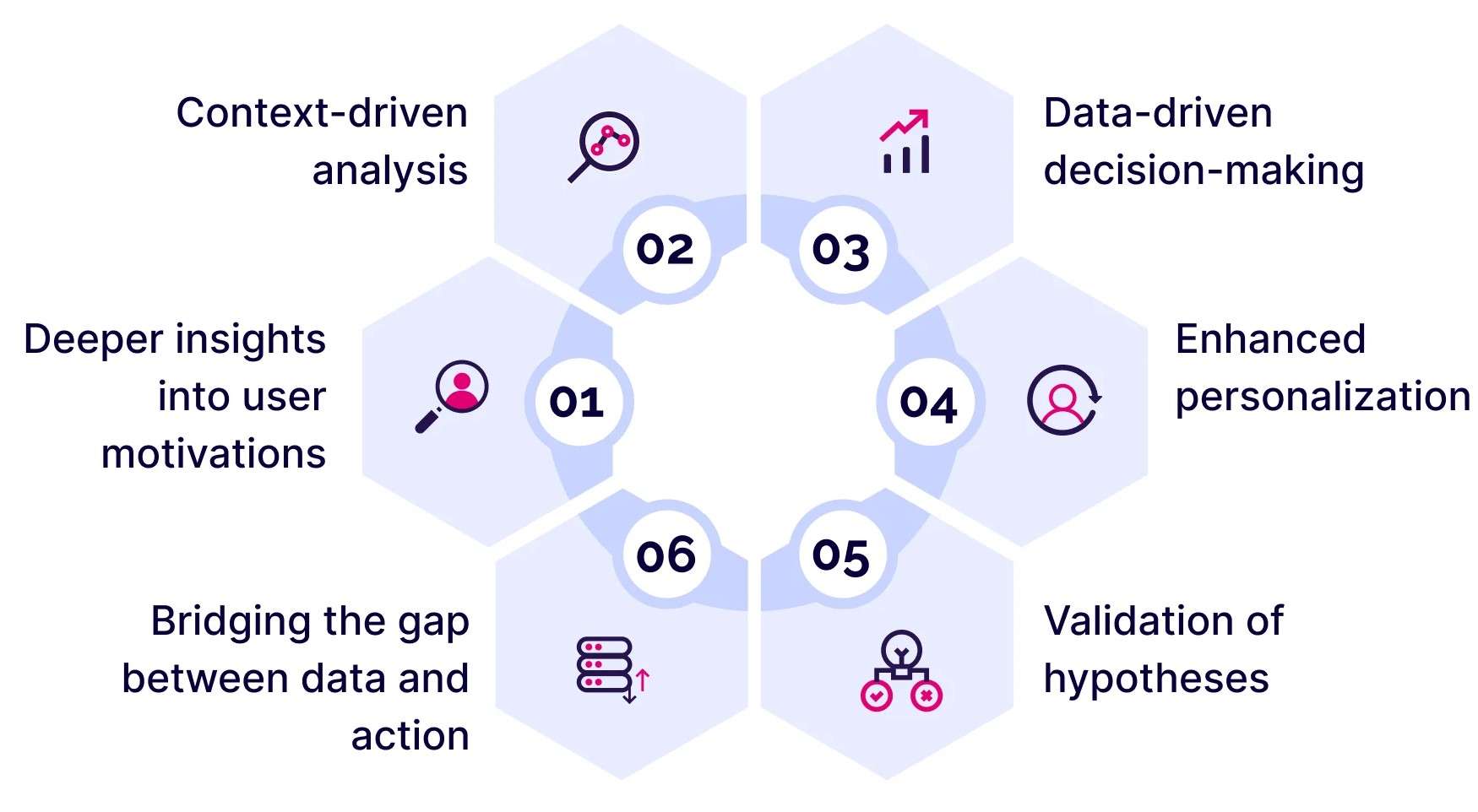
- Introduction to Business Research
- Types of Business Research
- Importance in Decision Making
- Qualitative vs Quantitative
- Data Collection Methods
- Data Analysis Tools
- Report Writing
Introduction to Business Research
Business research is the systematic process of gathering, analyzing, and interpreting data to aid decision-making in a business context. It plays a critical role in identifying market trends, understanding consumer behavior, evaluating competition, and improving operational efficiency. The primary goal of business research is to provide businesses with valuable insights that drive informed decisions, whether related to product development, marketing strategies, PMP training or organizational improvements. By using both qualitative and quantitative research methods, businesses can collect data from various sources such as surveys, interviews, focus groups, and secondary data. This research process helps organizations solve problems, optimize resources, reduce risks, and anticipate changes in the marketplace. Furthermore, business research supports strategic planning and enhances customer satisfaction by tailoring offerings to market demands. With the advancement of technology and data analytics, modern business research has become more data-driven, making it possible for companies to track performance metrics in real time. The use of business intelligence tools, predictive analytics, and machine learning has revolutionized research methods, allowing businesses to remain agile and competitive. Overall, business research is essential for achieving long-term success in today’s rapidly changing business environment. Key concepts include market research, consumer insights, competitive analysis, data-driven decision-making, business analytics, and PMP Training as part of professional development and project-focused strategy improvement.
To Explore PMP in Depth, Check Out Our Comprehensive PMP Certification Training To Gain Insights From Our Experts!
Types of Business Research
- Descriptive Research: This type focuses on describing characteristics or behaviors within a market or industry. It often involves surveys and observational techniques to gather data on consumer preferences, buying patterns, and demographic profiles.
- Exploratory Research: Used to explore new areas where little information is available, this research type aims to generate insights for further investigation. It is often qualitative and employs methods such as interviews or focus groups.
- Causal Research: This research seeks to identify cause-and-effect relationships between variables. It helps businesses understand how changes in one factor can impact another, making it crucial for evaluating marketing strategies or new product launches.
Business research can be categorized into various types based on the nature and scope of the study. Each type serves a unique purpose and helps businesses gather valuable data for decision-making. By selecting the appropriate research method, organizations can address specific challenges, identify opportunities, and enhance overall business performance. In many cases, understanding concepts like What Is Management And Why It Matters strengthens how businesses interpret research results and apply them effectively.

- Explanatory Research: Aimed at explaining the reasons behind a particular phenomenon, explanatory research provides in-depth insights into the “why” behind patterns observed in descriptive research.
- Applied Research: Applied research focuses on practical problems and provides solutions to specific business issues. It typically aims at improving processes, efficiency, or customer satisfaction.
- Basic Research: Also known as fundamental research, it aims to expand knowledge in a specific field without focusing on immediate practical applications. It contributes to the broader understanding of industry trends, economic shifts, or technological advancements.
Importance in Decision Making
Business research helps companies make sharp, evidence-backed decisions instead of rolling the dice on intuition. It reduces uncertainty, reveals hidden market patterns, and highlights potential risks by using tools like surveys, focus groups, observational methods, and data analytics. These insights help businesses understand evolving customer preferences, shifts in demand, and competitor tactics, while also improving operational efficiency and resource allocation. In the heart of this entire decision-making engine, structured planning and analytical methods inspired by PMP training strengthen how organizations evaluate information, manage ongoing projects, and design practical, results-oriented strategies. Business research also reviews the impact of previous decisions, identifies fresh opportunities before competitors notice them, and alerts companies to upcoming threats in the market. As a whole, it keeps businesses proactive, informed, and confident ready to adapt, innovate, and stay ahead in a constantly changing world.
Are You Preparing for PMP Jobs? Check Out ACTE’s Project Management Interview Questions & Answer to Boost Your Preparation!
Research Process
- Defining the Problem: The first step in the research process is to identify the business problem or research question. Understanding the problem ensures that the research focuses on the right issues and addresses the most relevant objectives.
- Reviewing Existing Literature: Before conducting primary research, it’s important to review existing studies, reports, and data. This helps in understanding previous findings, establishing a research framework, and identifying gaps in knowledge.
- Formulating a Hypothesis: In this step, researchers develop a hypothesis or research proposition based on the problem statement. The hypothesis guides the research design and indicates what relationships or trends the researcher expects to find.
The research process is a systematic series of steps that guide researchers in collecting, analyzing, and interpreting data to answer specific business questions. This process ensures that business research is structured, reliable, and provides actionable insights. By following a well-defined research process, businesses can gather the right data, make informed decisions, and optimize strategies. Below are the key steps in the research process:
- Research Design and Methodology: Selecting the appropriate research methods, whether qualitative or quantitative, determines how data will be collected. This includes choosing surveys, interviews, or focus groups and determining the sample size.
- Data Collection: This step involves gathering primary and secondary data through various methods. The data collection process is crucial for obtaining accurate, reliable information that will form the basis for analysis.
- Data Analysis and Interpretation: After collecting data, the next step is analyzing it to draw meaningful conclusions. Statistical tools, data analytics, and pattern recognition help in interpreting the results, allowing businesses to make informed decisions.
- Surveys: Surveys are one of the most popular methods of data collection, especially for quantitative research. They involve structured questionnaires that are distributed to a sample of respondents to gather data on customer preferences, behaviors, or opinions.
- Interviews: Interviews are a qualitative data collection method that provides in-depth insights. They can be structured, semi-structured, or unstructured and are used to explore individuals’ thoughts, feelings, and experiences in greater detail.
- Focus Groups: A focus group is a qualitative research method that involves a small group of people discussing a particular topic or product. It helps gather rich, qualitative data on consumer opinions and perceptions, providing valuable insights into customer behavior.
- Observational Research: This method involves directly observing subjects in their natural environment. It is especially useful in retail or consumer behavior studies, where businesses can gather data on actual behaviors rather than relying on self-reported responses.
- Experiments: In experimental research, businesses manipulate one or more variables to observe the effects on a target group. This method is useful in testing cause-and-effect relationships, such as how a new marketing strategy impacts sales.
- Secondary Data Collection: Secondary data refers to data that has already been collected by other researchers or organizations. It includes reports, studies, and publicly available data and is often used to complement primary research by providing additional context.
Are You Interested in Learning More About PMP? Sign Up For Our PMP Certification Training Today!
Qualitative vs Quantitative
Qualitative and quantitative research are two fundamental approaches in business research, each serving distinct purposes and providing different insights. Qualitative research focuses on understanding the deeper meanings, motivations, and experiences behind behaviors. It is often used to explore complex phenomena that cannot be quantified, such as consumer attitudes, preferences, and perceptions. Methods like interviews, focus groups, and case studies are commonly used in qualitative research, allowing businesses to gain rich, descriptive data that helps in understanding customer emotions and decision-making processes. On the other hand, quantitative research emphasizes numerical data and statistical analysis. It seeks to quantify variables and examine relationships between them. Concepts related to Quantitative Research Methods further strengthen this approach by guiding how data is collected, measured, and interpreted for business decisions. This type of research is essential for measuring market trends, testing hypotheses, and making predictions. Surveys, experiments, and data analytics are typical methods used in quantitative research. While qualitative research provides in-depth, detailed insights, quantitative research offers a more objective, measurable view of trends and patterns. Both approaches are valuable in business research as they complement each other. Qualitative research helps in generating hypotheses, while quantitative research tests and validates those hypotheses. Together, they provide businesses with a comprehensive understanding of the market, enabling better-informed decisions and improving overall business strategies through data-driven insights.

Data Collection Methods
Data collection is a vital part of the business research process, as it helps gather the necessary information for analysis and decision-making. The accuracy and reliability of the collected data directly influence the quality of research outcomes. There are several methods of data collection, each suited for different types of research and objectives. Understanding the Most Effective Data Collection Methods allows businesses to choose the right approach and ensure that the information gathered is meaningful and actionable. Below are the key data collection methods commonly used in business research:
Data Analysis Tools
Data analysis tools are essential in business research, as they help transform raw data into actionable insights. These tools enable businesses to process, interpret, and visualize data to support informed decision-making. Statistical software like SPSS, SAS, and R is commonly used for analyzing large datasets, performing complex statistical tests, and identifying patterns and trends. These tools help in the quantitative analysis of data, enabling businesses to measure relationships between variables and test hypotheses. In the broader analytics landscape, understanding key Data Analytics Tools helps organizations choose the right platforms for handling data efficiently and extracting meaningful insights. For more advanced data analytics, machine learning tools like Python, TensorFlow, and Scikit-learn are increasingly popular. They allow businesses to perform predictive analytics, build models, and gain deeper insights into future trends. Excel remains one of the most widely used tools for basic data analysis, as it offers functionalities like pivot tables, charts, and formulas to analyze smaller datasets efficiently. Additionally, data visualization tools such as Tableau, Power BI, and Google Data Studio play a crucial role in presenting complex data in an easily interpretable format. These tools enable businesses to create dashboards, charts, and graphs that highlight key performance indicators (KPIs) and trends. Ultimately, selecting the right data analysis tools is crucial for businesses to make data-driven decisions and improve overall performance by gaining a clear understanding of market dynamics, customer behavior, and operational efficiencies.
Are You Considering Pursuing a Master’s Degree in PMP? Enroll in the PMP Masters Program Training Course Today!
Report Writing
Report writing is a critical aspect of business research, as it involves presenting research findings in a structured and clear manner to inform decision-makers. A well-crafted report communicates the purpose, methodology, analysis, and conclusions of the research, ensuring that stakeholders can make informed decisions based on the data. The report should begin with an introduction, outlining the research problem, objectives, and scope. This is followed by a methodology section that explains the research design, data collection methods, and tools used. The findings or results section presents the data in a clear format, often using tables, charts, and graphs to help interpret the information. In the discussion section, the report analyzes the findings, comparing them with existing literature or previous studies, and draws conclusions based on the research. Finally, the report should include recommendations, suggesting practical actions based on the research results. Skills like structured documentation, commonly emphasized in PMP training support the clarity and organization expected in professional reports. The language of the report must be precise, formal, and free of jargon to ensure accessibility. A good report follows a logical structure, ensuring that each section flows smoothly into the next. Overall, effective report writing is essential for communicating research insights, making it a vital tool for decision-making, strategic planning, and business development.

